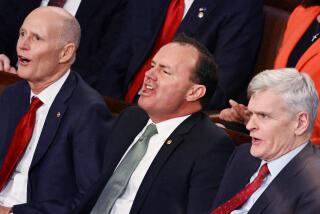Social Security Reform Panel Will Offer a Number of Proposals
WASHINGTON — A presidential commission assigned to redesign Social Security decided Friday to conclude its work next month by sending the White House a set of alternatives that would explore ways to improve the nation’s largest entitlement program, rather than trying to agree on a single plan.
The commission’s leaders said that each alternative will include a central change to the retirement system that President Bush favors: letting workers for the first time invest some of their payroll taxes in the stock market through private retirement accounts.
Still, the alternatives will offer substantially different approaches to another central goal: helping the Social Security system withstand enormous financial strains in coming decades as the baby boom generation reaches old age and Americans tend to live longer. “There are lots of ways you can fix the system,” said Richard Parsons, one of the panel’s two chairmen.
Parsons said one alternative will focus on slowing the flow of money out of the program, including by reducing benefits to future retirees. The commission already has considered one method that would essentially curb increases in retirees’ monthly checks by linking them to inflation, instead of wage growth--but has not decided whether to recommend that change.
A second approach will emphasize ways to bring more money into the program, including revenue from elsewhere in the federal budget. Parsons said the panel may propose another plan that would be a hybrid. He said that each alternative would contain enough detail that it could be evaluated by congressional budget analysts.
The group’s decision to avoid a single proposal represents the second consecutive time that a high-level panel asked to develop politically and economically delicate changes to Social Security has ended its task without a consensus. In early 1997, another commission that had worked for two years ended up so fractured that its final report contained three separate plans.
The current commission is far less divisive. All 16 commissioners, split evenly between Republicans and Democrats, agreed ahead of time with a half-dozen principles set forth by Bush, including the controversial private retirement accounts.
Given that broad agreement, the decision to give Bush several choices reflects the changed political environment in which the panel has worked since the terrorist attacks two months ago. When the president appointed the commission last May, he indicated that persuading Congress to restructure Social Security would be one of his domestic priorities next year. Friday, asked whether Social Security changes would be set on a slower course, former Sen. Daniel Patrick Moynihan (D-N.Y.), the panel’s other co-chairman, replied: “Oh, sure.”
Even in the altered climate, the intense politics surrounding the issue were in plain view as proponents and critics of private accounts clashed over the wisdom of giving the president multiple plans. Key congressional Democrats and several outside groups that oppose individual investments said the panel was blurring the issue and hindering Congress’ ability to fix the program.
But conservative allies of the commission praised its caution. “A series of options is probably better. This allows the president and Congress to pick and choose,” said David John, an analyst for the Heritage Foundation.
Friday’s meeting offered a glimpse at the difficult decisions the panel still faces. Members disagreed over whether workers should be able to reach into their retirement accounts early in an emergency--and whether they should be able to draw on their money as quickly as they want after they reach retirement age.
More to Read
Inside the business of entertainment
The Wide Shot brings you news, analysis and insights on everything from streaming wars to production — and what it all means for the future.
You may occasionally receive promotional content from the Los Angeles Times.










